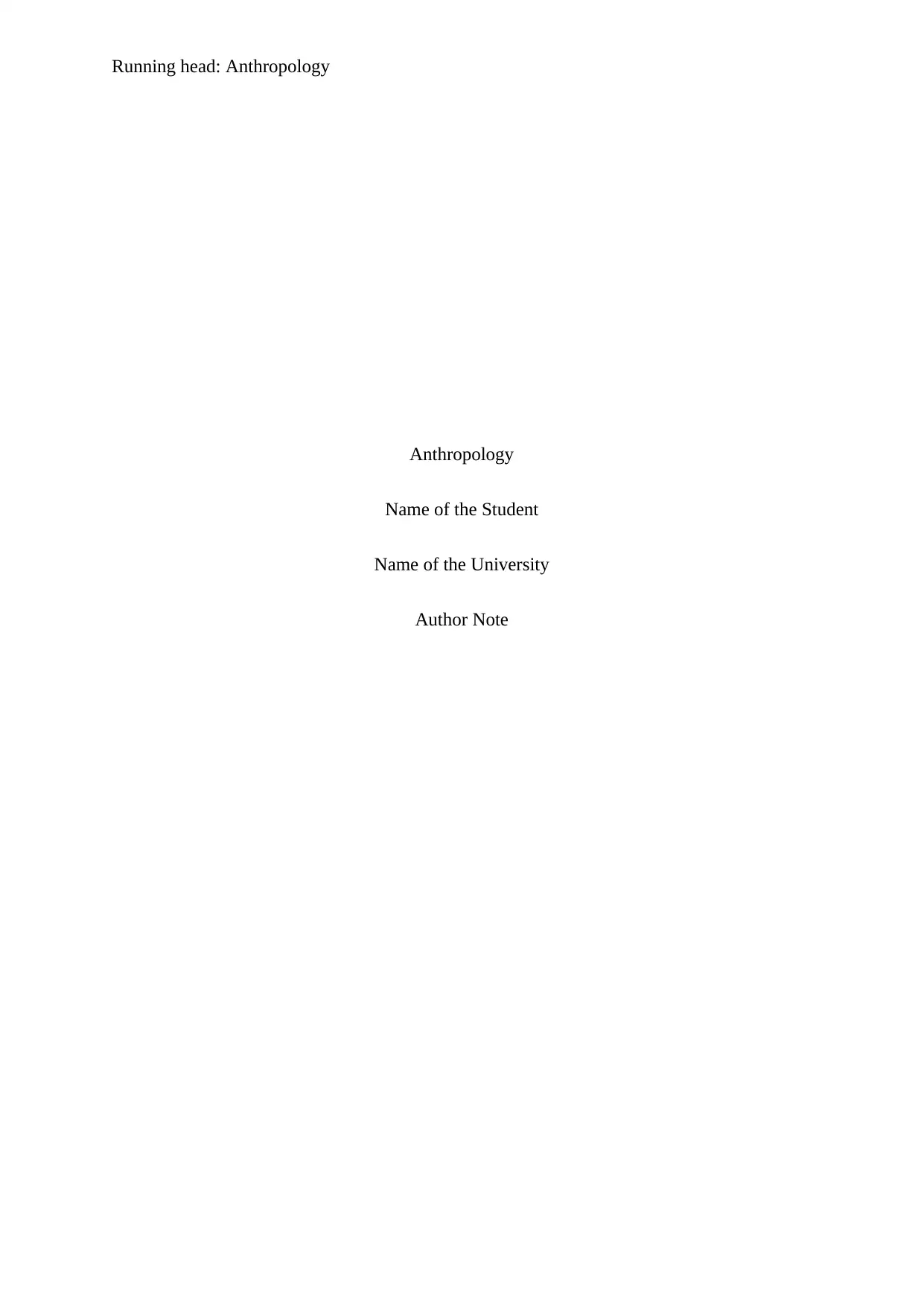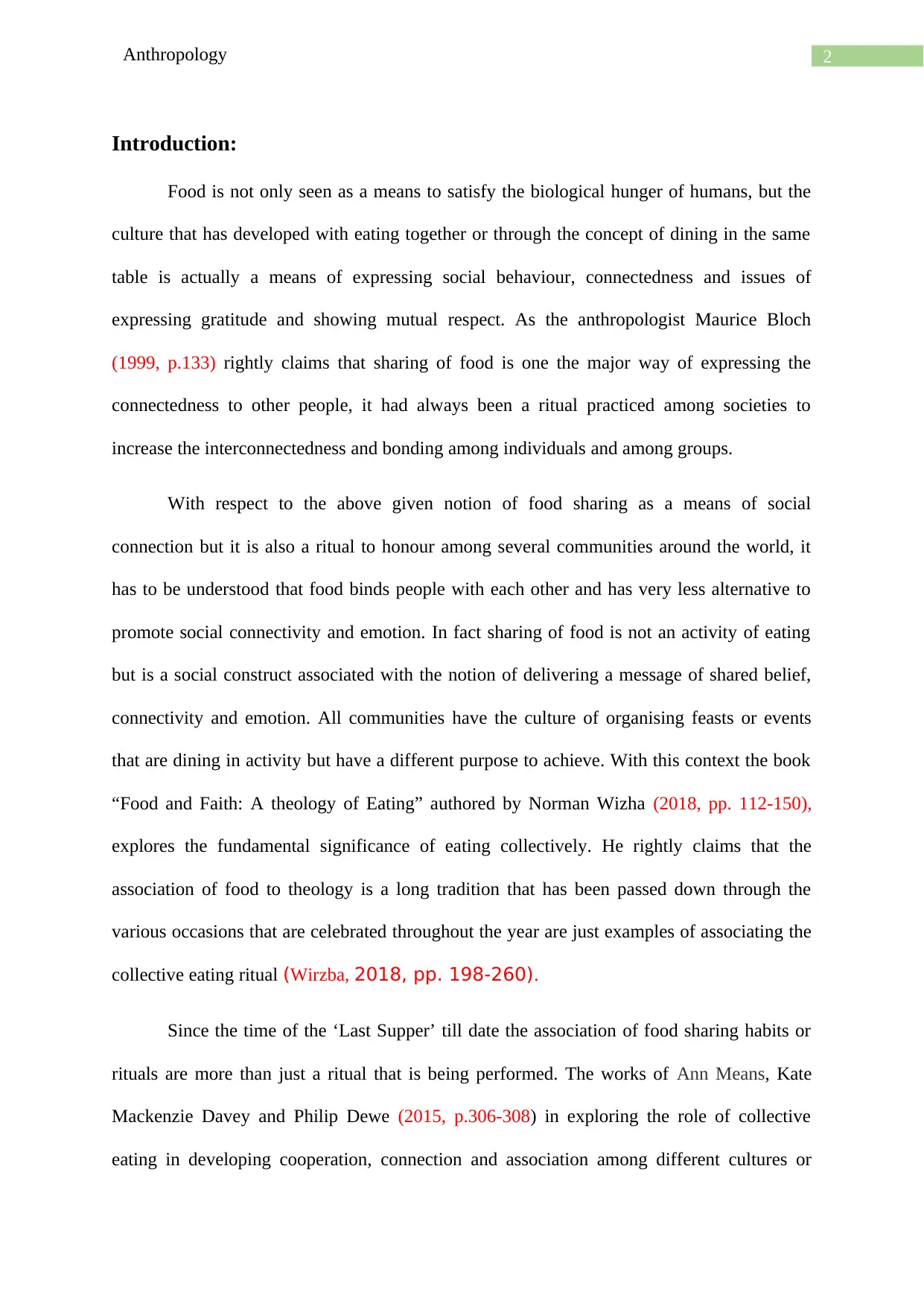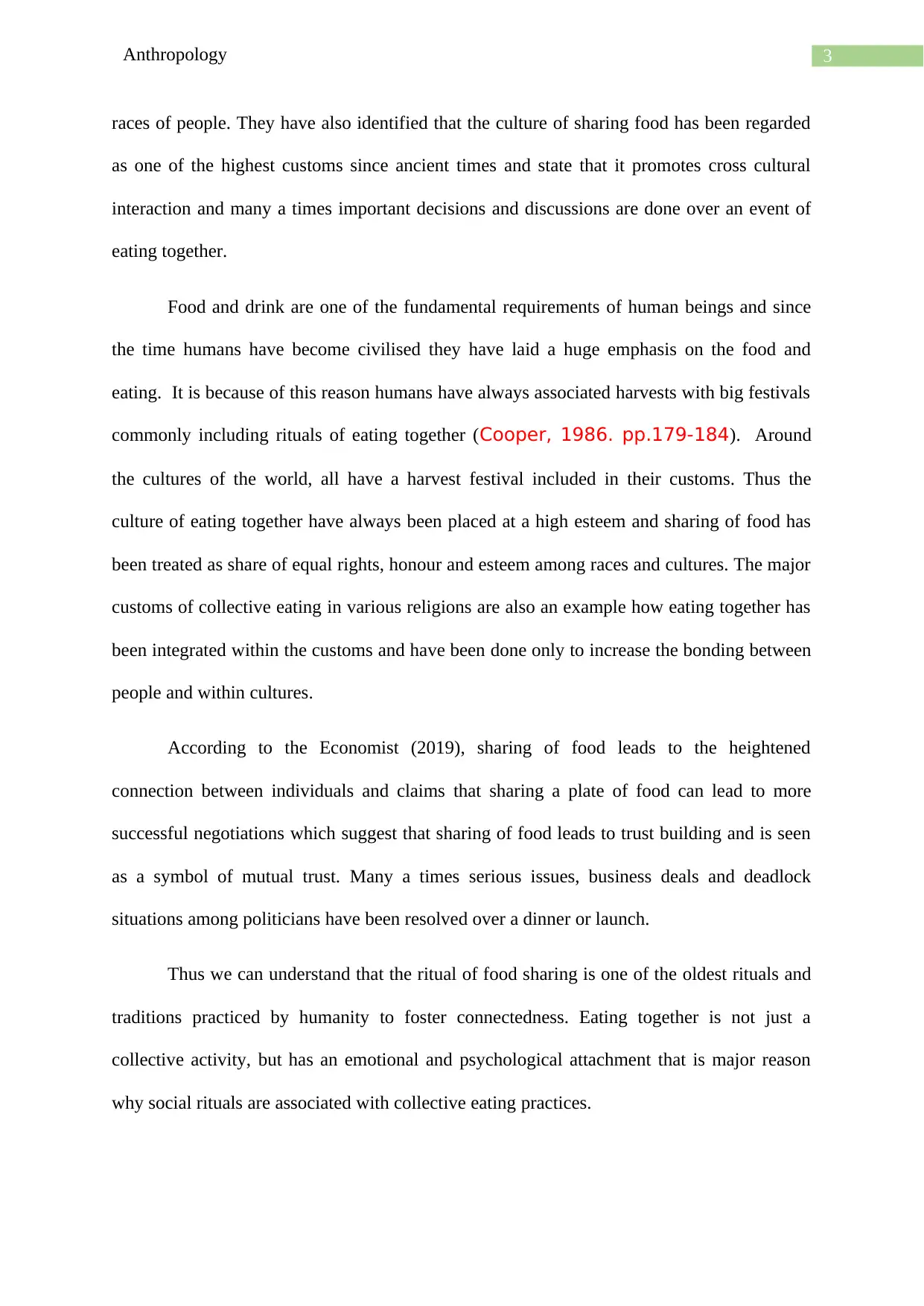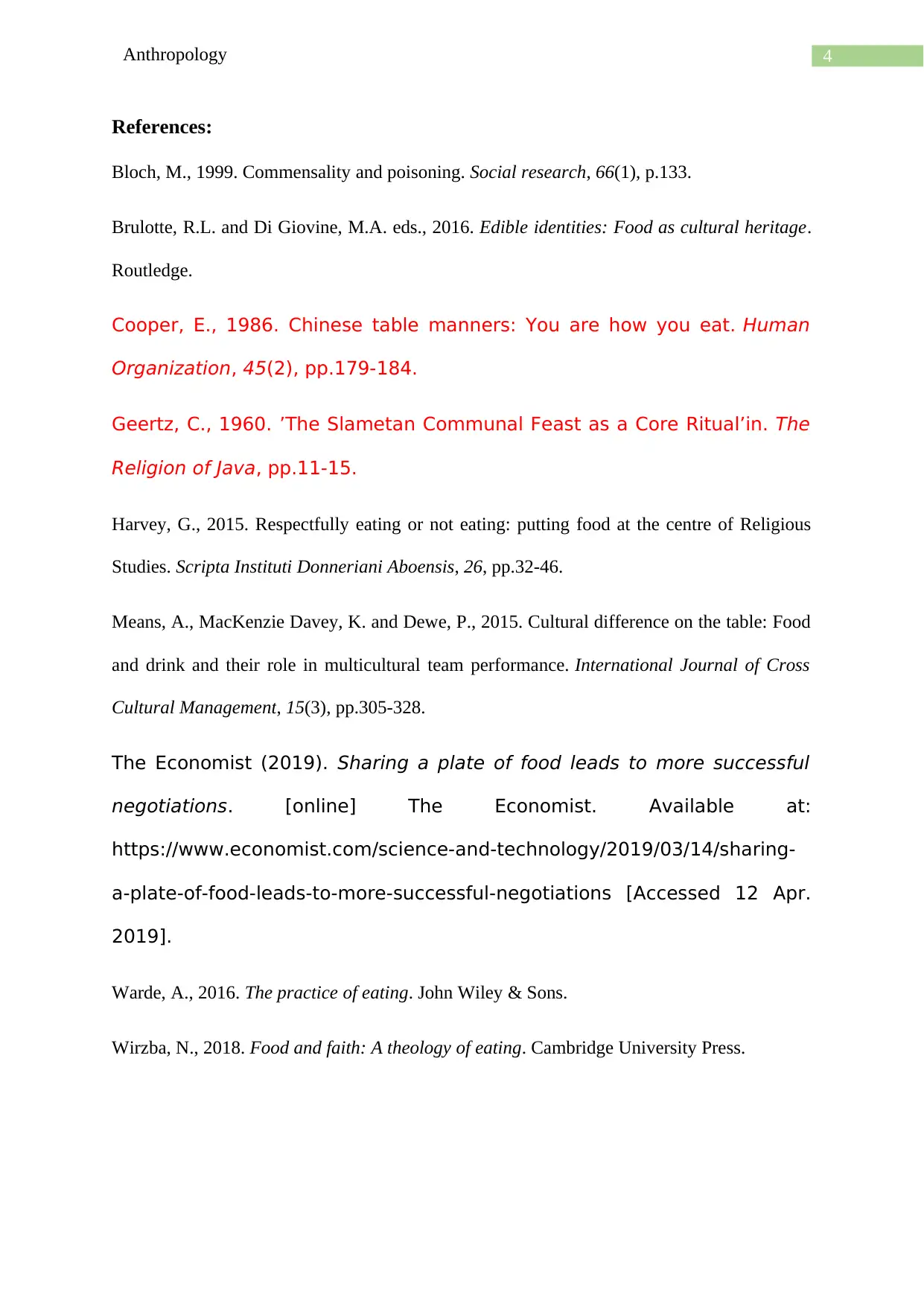ANTH203: Food Sharing, Culture, and Social Bonds Essay Analysis
VerifiedAdded on 2023/01/18
|5
|961
|59
Essay
AI Summary
This essay, written for an ANTH203 assignment, explores the multifaceted role of food sharing in human societies. It argues that food is more than sustenance; it's a powerful means of expressing social behavior, fostering connection, and conveying cultural values. Drawing on anthropological perspectives, the essay examines how collective eating rituals, from ancient harvest festivals to modern business negotiations, promote trust, cooperation, and social bonding. The author references key scholars like Maurice Bloch and Norman Wizha to illustrate the significance of food in shaping social dynamics and cultural identities across different communities. The essay highlights how food sharing serves as a fundamental element of human interaction, influencing both individual relationships and broader societal structures, emphasizing its importance in building interconnectedness and resolving conflicts. The work also mentions the importance of cross cultural interactions that are established over food and drink.
1 out of 5






![[object Object]](/_next/static/media/star-bottom.7253800d.svg)